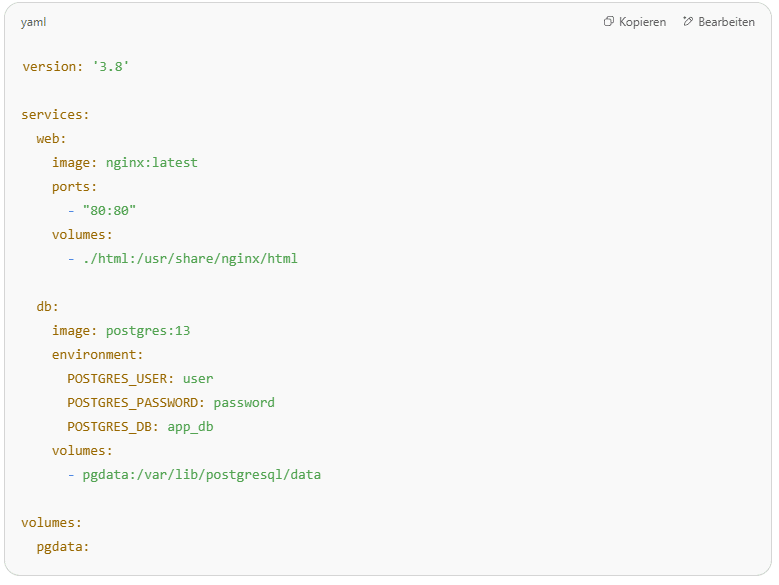How to Use Docker Compose on a Linux Server to Deploy Multiple Services
Managing multiple containerized applications can get complicated—especially on a production Linux server. Docker Compose simplifies this by letting you define and manage multi-container applications using a single YAML file. Whether you’re deploying a web app with a database or orchestrating microservices, Docker Compose is a powerful tool for managing your stack.
What is Docker Compose?
Docker Compose is a tool that allows you to define and run multi-container Docker applications. With it, you describe the services, networks, and volumes your application uses in a docker-compose.yml file.
Step-by-Step Guide to Deploying Multiple Services
1. Install Docker and Docker Compose
If Docker isn’t already installed on your server:
sudo apt update
sudo apt install docker.io -y
sudo systemctl enable docker --now
Install Docker Compose:
sudo curl -L "https://github.com/docker/compose/releases/latest/download/docker-compose-$(uname -s)-$(uname -m)" -o /usr/local/bin/docker-compose
sudo chmod +x /usr/local/bin/docker-compose
docker-compose --version
2. Create a docker-compose.yml File
Here’s a simple example to deploy a web application with Nginx and a PostgreSQL database:
version: '3.8'
services:
web:
image: nginx:latest
ports:
- "80:80"
volumes:
- ./html:/usr/share/nginx/html
db:
image: postgres:13
environment:
POSTGRES_USER: user
POSTGRES_PASSWORD: password
POSTGRES_DB: app_db
volumes:
- pgdata:/var/lib/postgresql/data
volumes:
pgdata:
3. Start the Services
From the directory where your docker-compose.yml is located:
docker-compose up -d
This command will pull the images, create containers, and start them in detached mode.
4. View and Manage Services
Check running containers:
docker-compose ps
Stop the stack:
docker-compose down
View logs:
docker-compose logs -f
Benefits of Using Docker Compose on a Linux Server
- Simplified deployment: Manage all your services from one file.
- Repeatability: Easy to recreate environments.
- Isolation: Containers are kept isolated but networked together.
- Scalability: Add more services or replicas easily.
How to Use Docker Compose on a Linux Server to Deploy Multiple Services (F.A.Q)
Can I use Docker Compose in production?
Yes. While Docker Swarm or Kubernetes are better suited for large-scale production environments, Compose works well for small to medium apps.
How do I persist data across restarts?
Use named volumes or bind mounts in your docker-compose.yml to retain data.
Can services communicate with each other?
Yes, Docker Compose automatically sets up a shared network so services can use service names to communicate.
How do I update a service?
Modify the docker-compose.yml file or pull a new image, then run docker-compose up -d again. Compose will recreate the affected services.



